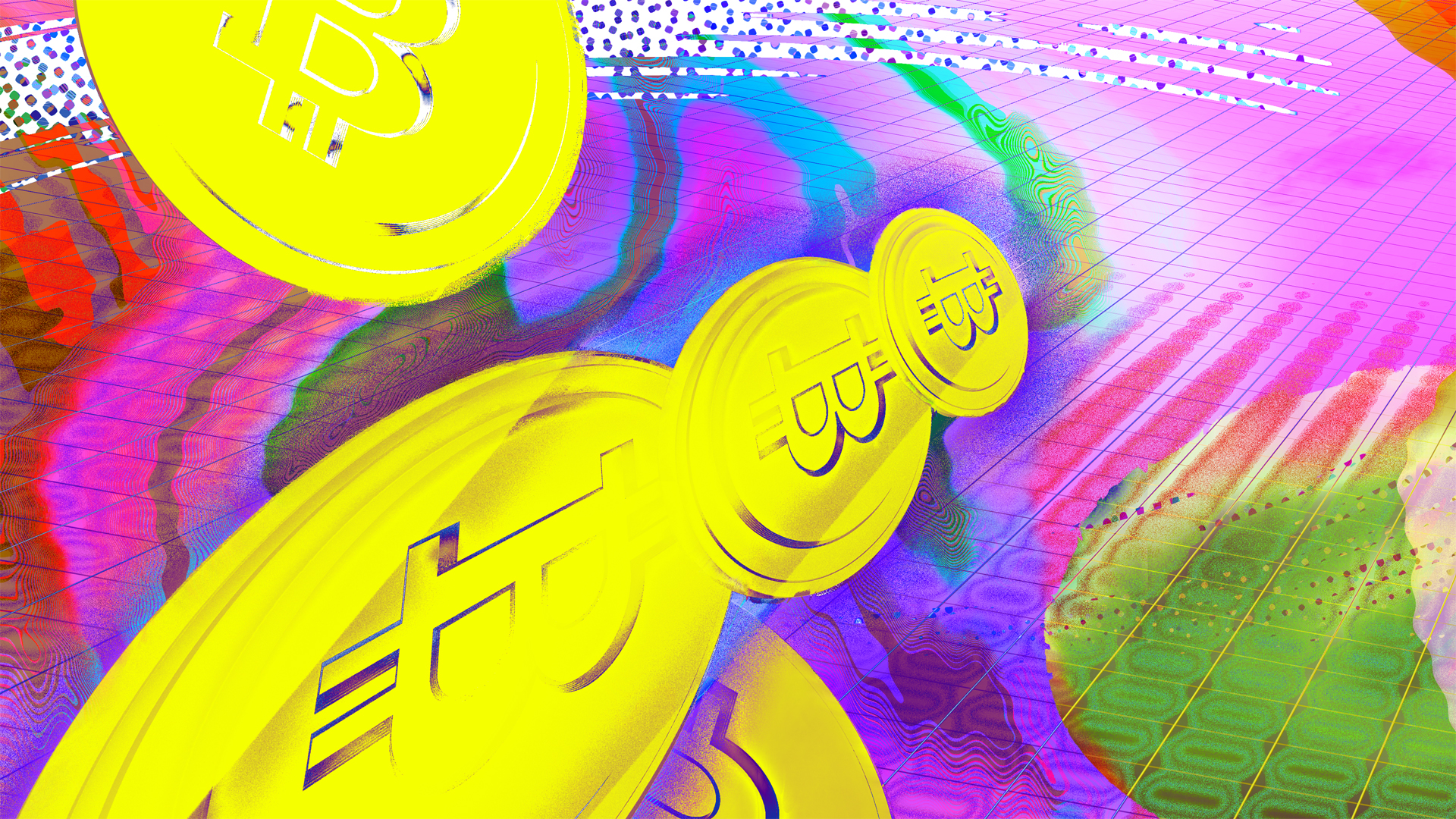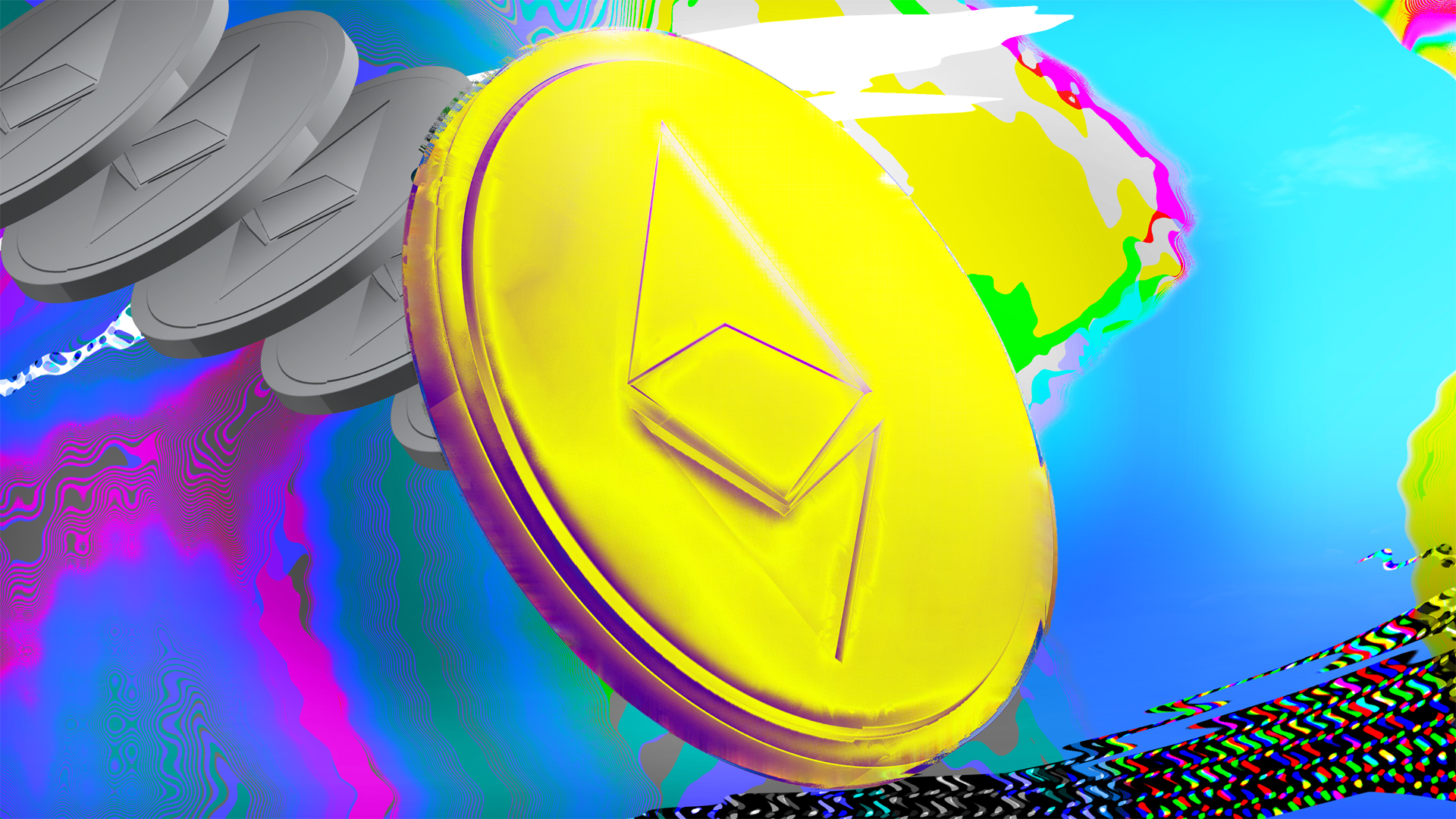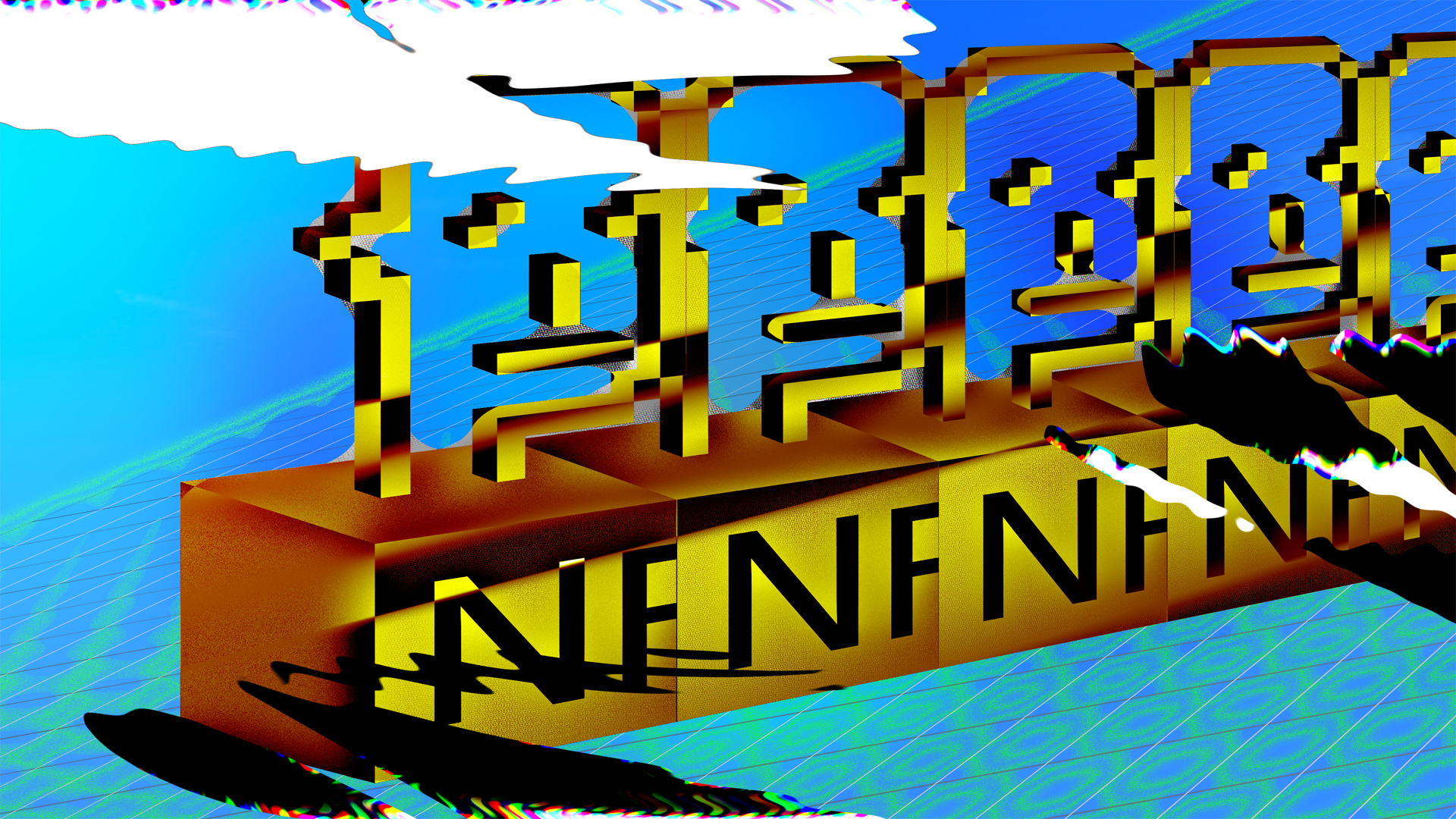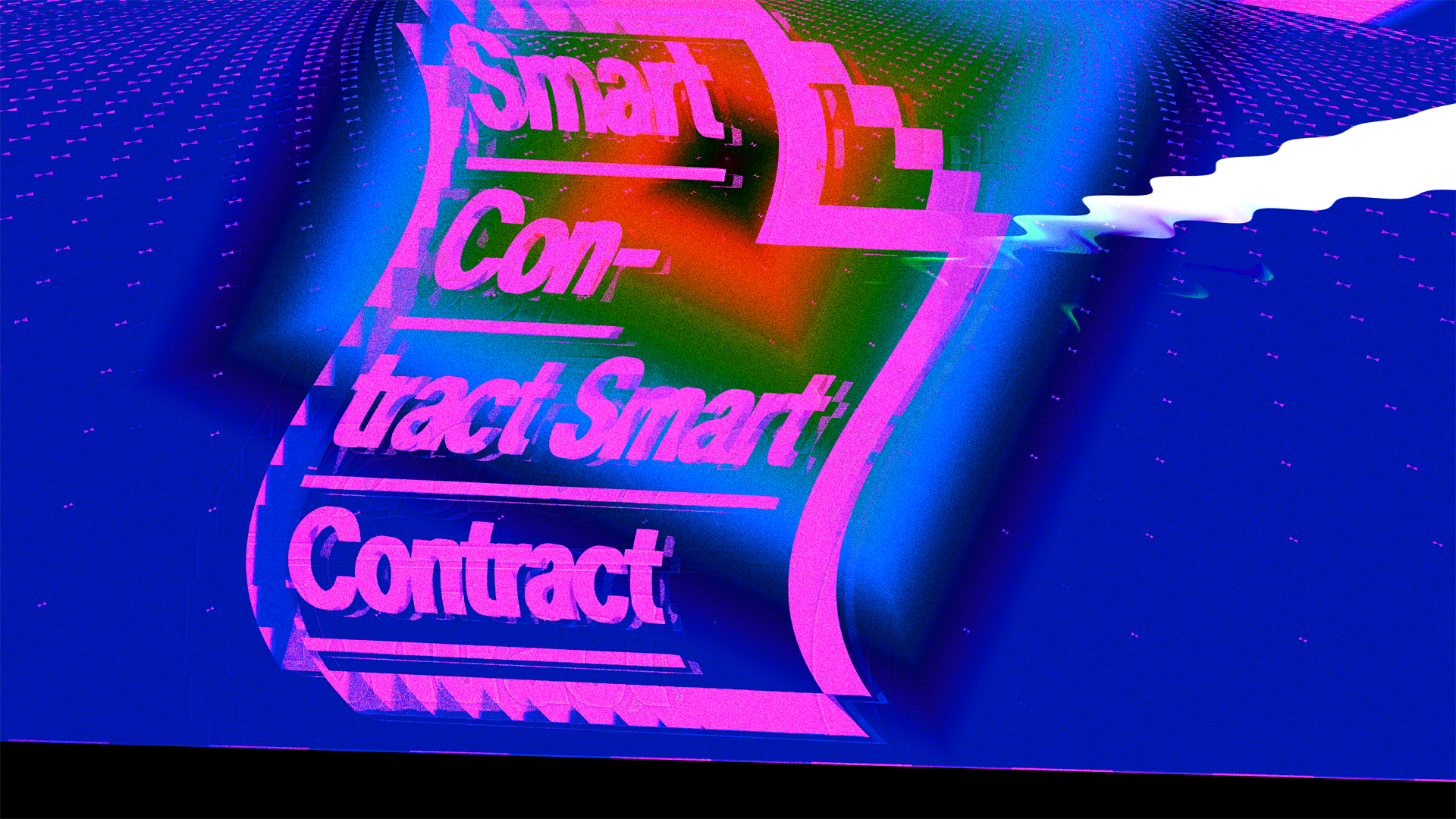These days, discussing cryptocurrency can feel on par with chatting about the weather — even for those of us who aren’t in the fintech space, it’s often hard to avoid. But for all its popularity, it’s not exactly easy to engage with the ecosystem behind it. The world of digital coinage is not without its barriers to entry, especially for newcomers.
Why, you ask? Well, for one, it’s an entirely new way of conceptualizing commerce and value itself. But on top of that, the market is often associated with words like “volatile,” “unpredictable,” and “fickle” (hardly welcoming terms). In fact, the whole category is cloaked in jargon, making it a daunting topic to broach (think: “NFTs,” “gas,” and “dApps”). For folks looking to dip their toes into the underlying blockchain technology, the lingo can certainly be disorienting (read: intimidating). Think about it: You’re required to translate new coinage names, wallet types, and NFT requirements just to join the conversation. It’s like learning a new language.
Videos by VICE
That’s why we’ve collaborated with Venmo — where crypto newbies can easily buy, sell, and hold digital currencies using an app they already keep in their regular rotation — to tap crypto journalist and author of The Cryptopians: Idealism, Greed, Lies, and the Making of the First Big Cryptocurrency Craze, Laura Shin, for a jargon-busting lesson. Ahead, find our pocket crypto glossary: all your need-to-know fintech terms to thrive in the world of blockchain, according to Shin.
This is by no means a crypto bible, but when in doubt, feel free to check back here for the essentials — whether you’re buying, selling, holding, or merely making dinner party conversation.
Alt-coin
This word has two meanings, according to Shin. “[Alt-coin] is used pejoratively sometimes, implying that a coin doesn’t have much merit on its own,” she explains. The rest of the time, it’s used to describe any coin that isn’t bitcoin (for example: Ethereum, Litecoin, Bitcoin Cash, the list goes on).

Bitcoin
Bitcoin is another word with two meanings. Shin says that technically bitcoin (lowercase) refers to the first cryptocurrency developed while Bitcoin (uppercase) is the first blockchain. It is governed by an algorithm in which only 21 million bitcoins can ever exist. Its abbreviation is BTC.
Bitcoin Cash
Bitcoin Cash (abbreviated as BCH) is a cryptocurrency and blockchain spun off of the same blockchain as bitcoin in an event known as the “Bitcoin fork”. The spinoff was designed to enable more transactions. It shares the same transaction history with bitcoin up until the creation of bitcoin cash.
Blockchain
In the simplest of terms, the Blockchain system is a digital ledger that stores transactions in a digital format. Each transaction that occurs is recorded as a block of data inherently linked to the block before it, creating a secure chain of information that cannot be changed. These blocks are connected chronologically, with new blocks being added as transactions continue.
Blockchains are usually stored across a distributed network of servers, each continually exchanging, storing, and updating the ledger. This allows the information to be decentralized and unable to be corrupted by a single user.

Cold Wallet
A physical device to store your crypto offline. Modern cold wallets look similar to a USB drive and reduce the risk of hacking since they are not connected to the internet. It’s important to keep the device in a safe place because crypto is not recoverable if lost or stolen.
dApps
Short for decentralized applications, “dApps” are applications or programs that run on a blockchain and are developed without any intermediaries. Instead of a single company that hires employees, dApps have a coin designed to incentivize people to offer their services.
Decentralization
Decentralization is a movement to design programs, applications, and other digital projects without requiring centralized actors. “For example,” Shin offers, “If you were designing a new app online, typically in Web 2.0, it would be done with a centralized company like a startup that would hire all the people to make it run. But in the decentralized world, you would build by designing a coin to incentivize people to fulfill all the roles.” Those who contribute to building these apps are typically compensated with the coins of the system they run on.
DeFi
Decentralized Finance (DeFi) is a system whereby different financial services operate online without having financial institutions behind them. “You’re replacing those financial institutions with software or protocol, and incentivizing the different actors on a network to provide whatever services you need,” says Shin.

Ethereum
This is the second most popular blockchain — and the second largest in terms of market cap. It’s a platform for other decentralized applications, such as the game CryptoKitties. People often call it a decentralized world computer. “Another way to describe it would be an app store where any developer can dream up a decentralized application and upload it to Ethereum,” says Shin.
Ethereum 2.0
You might hear Ethereum 2.0 referred to as the consensus layer. “Basically, Ethereum 2.0 refers to a proof of work blockchain that has become a proof of stake blockchain,” Shin says. “And all that means is that instead of electricity [through crypto mining] being the way that the network is secured, now it’ll be secured by people depositing certain coins, so-called staking them, and earning interest on them to secure the chain.”
Fiat Currency
Fiat currency is a type of currency issued by a government decree — but isn’t necessarily backed by anything (i.e. gold).

FUD
Standing for “fear, uncertainty, and doubt.” It’s a term often used to describe those who are critical of the crypto world. These people are said to “have FUD”.
HODL
“It just means hold,” says Shin. “The misspelling comes from a drunken forum post on a bitcoin talk forum, where someone meant to write hold and they wrote, HODL. But it just means what it means—don’t sell your coins.”
Initial Coin Offering
Think of this like fundraising. An initial coin offering is basically a crowd sale in exchange for cryptocurrency tokens issued by the company, used to fund the development of a new blockchain project. The tokens can also have utility for a particular service or product.
Litecoin
Litecoin is often referred to as digital silver (in contrast to bitcoin being referred to as digital gold). “It’s designed like bitcoin but with slightly different parameters,” says Shin. “There are more litecoins than bitcoin and the block time — the time between transaction broadcasts — is shorter on litecoin.”

Metaverse
Simply put, the metaverse is an alternative, virtual world where you can own digital assets like NFTs and transact using cryptocurrencies. But it’s not quite that simple. “The way it’s being developed right now, it doesn’t seem like there’s going to be a single metaverse,” says Shin. “There are centralized companies building their own versions of the metaverse, so this term is ill-defined at the moment. It’s not really clear what it’s going to be, in the end.”
Mining
A way in which people try to obtain a new coin being minted (essentially, made official) by a blockchain or by a crypto network. Crypto mining requires solving complex equations. The first miner to solve the problem gets a reward of the next block in the blockchain, resulting in a new transaction being added to the ledger.

NFT
NFT is short for non-fungible token and a new concept in ownership. “It’s what enables you to own objects in the digital metaverse. Basically it’s a unique token,” Shin explains. “If I asked you to pay me a bitcoin for some huge, huge item, I wouldn’t say I prefer this bitcoin over that bitcoin or anything like that. With a non-fungible token, since it’s unique, each one is distinct from another.”
Every bitcoin has the same value, and each is interchangeable. In contrast, an NFT’s value comes individually, as each token is different. For example, think about the way your kid’s artwork on your fridge will have a different market value than, say, a Picasso — even though they’re both technically artworks.
“There can be a particular class of NFTs that are unique within that class,” clarifies Shin. “So for instance, you could have a series of 100 tickets to an event that are NFTs, so they’re fungible with each other but not with anything outside.”
Private Key & Public Key
“A private key is what enables you to send crypto from your wallet or address to another wallet or address, whether it’s owned by you or by someone else,” says Shin. “But a public key is what allows you to accept crypto when it’s sent your way from a different user. A public key would be like a mailbox where you receive money and then a private key would be the door in the back that allows you to send money out.”

Smart Contracts
These are software programs that automatically execute the terms of an agreement between two transacting parties without the need for a company or other intermediary to intervene and ensure that the two parties fulfill the terms of their agreement. The contract executes itself, without anyone overseeing it. For example: A vending machine transaction. You put a dollar into the vending machine, and the machine gives you a soda. No one has to enforce this transaction. Smart contracts are often used to execute contracts and agreements efficiently across blockchains, such as Ethereum.
Wallet
A hardware device or an application used to keep private keys safe. “Your wallet allows you to interact with the blockchain: you can view your balance and send or receive money,” says Shin.

More
From VICE
-

(Photo by Cindy Ord/Getty Images for SiriusXM) -

Screenshot: NVIDIA -

Screenshot: CD Projekt RED -

Photo: Tatsiana Niamera / Getty Images
